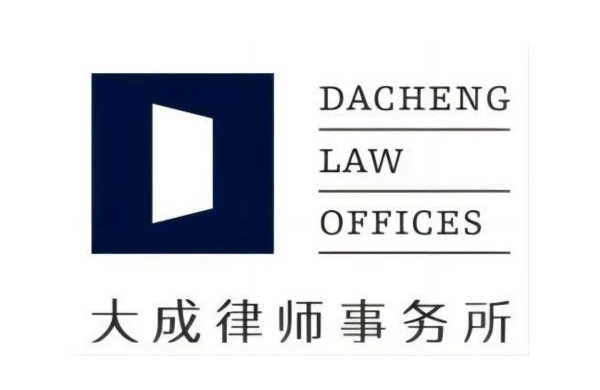Did not receive verification mail? Please confirm whether the mailbox is correct or not Re send mail

IPR Daily
- 2022-05-17 15:25:53
China: AFD China Newsletter - May 2022-Part 1
Please be noted that this article is the first part of the report, the second part could be seen here.
China's Supreme People's Court issued Several Provisions on the Jurisdiction over First-Instance Trial of Civil and Administrative Cases Involving Intellectual Property
On April 20, 2022, China's Supreme People's Court (SPC) issued Several Provisions on the Jurisdiction over First-Instance Trial of Civil and Administrative Cases Involving Intellectual Property ("Provisions"), which has come into effect since May 1, 2022.
It is clearly stipulates in the Provisions that the first-instance trial of civil and administrative cases involving the ownership of and infringement disputes and monopoly disputes over invention patents, utility model patents, new plant varieties, integrated circuit layout designs, technical secrets and computer software are subject to the jurisdiction of intellectual property courts, intermediate people's courts of places where people's governments of provinces, autonomous regions or municipalities directly under the Central Government are situated, and intermediate people's courts determined by the SPC; the first-instance trial of civil and administrative cases involving the ownership of and infringement disputes over design patents and the identification of well-known trademarks are subject to the jurisdiction of intellectual property courts and intermediate people's courts.
See the following link for the full text (in Chinese) of the Provisions:
SPC OKs Quanzhou IP court
An intellectual property (IP) court will be established in the Quanzhou Intermediate People's Court (IPC) in East China's Fujian province, according to an approval document released by the SPC.
The document said first instance IP related civil and administrative cases within Quanzhou's jurisdiction that involve patents, new plant varieties, layout designs of integrated circuit, technical secrets, ownership of computer software and recognition of well-known trademarks, as well as first instance IP related civil, administrative and criminal cases beyond the jurisdiction of Quanzhou's grassroots courts, will all be within the jurisdiction of Quanzhou IPC.
The document was issued as a reply to the motion of establishing an IP court in Quanzhou, submitted by the National People's Congress (NPC) deputies from Quanzhou during the fifth session of the 13th NPC held in March.
Quanzhou will become the third city in Fujian province to host an IP court, said an official from the Quanzhou IPC.
Over the years, Quanzhou has pioneered multiple innovative measures in its efforts to build a national independent innovation demonstration zone, which has resulted in significant progress in its innovation capacity and need, as well as judicial protection over intellectual property rights. From 2017 to 2021, courts in Quanzhou concluded 16,000 IP related cases, accounting for 27 percent of the total number of concluded cases in the province.
The establishment of the Quanzhou IP court will better meet the rising need and lower the cost of IPR protection, expand Quanzhou's influence on IP judicial protection as a key city along the Maritime Silk Road, and will be conducive to strengthening protection of private enterprises' innovation achievements.
China Stresses Need to Curb Malicious IPR-related Prosecutions
China will crack down on malicious prosecutions related to intellectual property rights, a senior official from CNIPA said on Friday.
Malicious prosecutions interfere with the normal operations of the IPR system, damage public interests and waste national administrative resources, CNIPA head Shen Changyu said at the 2022 High-level Forum on China IP Protection.
He stressed the need to crack down on and regulate malicious prosecutions and promote balanced IPR protection.
Balanced protection means maintaining the balance between strict IPR protection and the prevention of IPR abuse, and the balance between encouraging innovation and protecting public social interests.
He Xiaorong, vice president of the SPCt, pledged at the forum to make efforts to build a healthy, orderly and fair environment for IPR protection.
Chinese Courts Handle More than 640,000 IPR Cases in 2021
People's courts across China handled 642,968 cases involving intellectual property rights (IPR) in 2021, of which 601,544 were concluded, said an official with the country's SPC.
The numbers of cases handled and concluded have grown by 22.33 percent and 14.71 percent respectively from 2020, said SPC official Lin Guanghai.
Punitive compensation was given as part of the sentence in 895 cases, Lin added.
SPC on Thursday released a white paper on Chinese courts' IPR-related judicial protection in 2021. According to the white paper, the courts are seeing an increasing amount of IPR cases related to the internet, with more and more new and complicated legal issues involved.
The courts have been taking active measures to streamline the process of handling lawsuits and ease the burden of rights holders, said Lin.
Seed ID Technology Helps Better Protect IPRs of Owners
A new independently developed method to identify seed varieties at the molecular level is being applied to help detect counterfeits and quickly clarify the intellectual property owners of imported germ plasm resources, experts said.
The method, called MNP marker, can obtain identifications for crop varieties with much higher efficiency and 99.98 percent accuracy, said Peng Hai, head of the research team at Jianghan University in Wuhan, Hubei province.
Using the method, a person can identify 1,033 markers of rice cultivars. The efficiency is a thousand times higher than traditional identification methods, Peng told Chutian Metropolis Daily, a news portal based in Hubei.
Last year, Yazhou Bay Seed Laboratory in Sanya, Hainan province, introduced the MNP marker method developed by Peng's team.
The lab was established in May last year to cultivate seed varieties with robust performances and break scientific bottlenecks in the seed industry.
Peng Jun, deputy director of the laboratory, said researchers used the method during molecular testing to clearly identify seed varieties.
"It provided important technical support for confirming and protecting intellectual property rights and will play a role in the global market," he said.
Although China has made achievements in the seed industry in recent years, it still faces challenges cultivating good varieties and solving the homogenization problem of seed resources.
Peng Jun said it may take agronomists more than 10 years to cultivate a variety, but sometimes others make "little modifications" to existing varieties to create counterfeit ones so they can own new IPRs.
"The MNP marker can identify the seed variety and distinguish essentially derived varieties from counterfeits, encouraging scientists' innovation in the seed industry," he said, adding it can authenticate crop varieties including rice, corn, tomato and watermelon.
By using an MNP-fingerprint database, seed breeding companies can decide whether to give up on less innovative varieties and adjust their research to avoid unnecessary investment.
As well as technologies, the revised Seed Law, which took effect on March 1, has also strengthened protection of new plant varieties and seed-related intellectual property rights, according to Yang Heqing, an official from the NPC's Standing Committee's Legislative Affairs Commission.
The revised law establishes a system of essentially derived varieties that are distinct from, but retain the basic characteristics of, the original varieties.
The law clarifies that though authorization and new plant variety rights can be sought for essentially derived varieties, the owners of the original varieties should agree with and charge for their commercial use, Yang said.
The punishment for those who intentionally infringe on the rights of holders of new plant varieties has been increased to further protect the legitimate rights of the IPR owners, he added.
SUPPLEMENTARY ISSUE
Judgement on the First Drug Patent Linkage Lawsuit in China is issued
On April 15, 2022, the Beijing Intellectual Property Court publicly pronounced a first-instance judgment on a dispute between the plaintiff Chugai Pharmaceutical Co., Ltd. and the defendant Wenzhou Haihe Pharmaceutical Co., Ltd. over whether Haihe's drug falls into the protection scope of Chugai's patent. After trial, the Court held that Haihe's generic drug does not fall into the protection scope of the patent at issue and ruled to reject the plaintiff's litigation claims.
This case is the first drug patent linkage lawsuit in China since the newly amended Patent Law came into force.
Source: mondaq.com
Editor: IPR Daily-Selly
- I also said the two sentence
- Also you can enter 140words
 PurpleVine Successfully Assists Client in Invalidating Sisvel US Patent
PurpleVine Successfully Assists Client in Invalidating Sisvel US Patent Chang Tsi & Partners Successfully Represents Wuxi's First Intellectual Property Civil Case Attached to Criminal Case
Chang Tsi & Partners Successfully Represents Wuxi's First Intellectual Property Civil Case Attached to Criminal Case China Monthly Antitrust Update: February 2024
China Monthly Antitrust Update: February 2024 IPOS was publishing a legal decision involving the trademark of tech giant, Google
IPOS was publishing a legal decision involving the trademark of tech giant, Google


